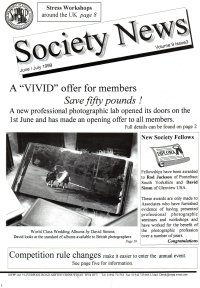articles/Business/facingmedia-page2
Facing the Media - part 2 of 1 2 3
Published 01/06/1999
Tell the truth
The worst mistakes are made when interviewees try to hide the truth. It's usually blatantly obvious when someone is hiding something. It may not come out in the words but it will come out in their body language and tone of voice.
This may be a hard lesson for some people to learn but showing genuine concern and responsiveness will not be taken as a sign of weakness. Rather the opposite is true.
Even when a company is facing a disaster, showing an appropriate and genuine commitment to retrieving the situation can win over the sympathy of the audience. Defensive statements however will be taken as a sign of guilt and of not taking responsibility.
Use simple English
This is true for all communication media although of course the more technical or industry specific media will expect you to know your subject. The issue here however is one of no waffle and no jargon.
Almost all professionals employ their jargon. It is used by people as some kind of shorthand to indicate that they are in the know but it is often open to interpretation. The overriding rule when facing the press however is to avoid it and if you have to use technical terms explain them in a way that the audience can understand.
The other guideline here is to be succinct. Think in short sentences and short words again don't see this as a sign of inferior intellect but rather of a way to get your message across. This is all about clarity so be succinct and don't get carried away with your own cleverness.
Consider your personal appearance
Journalists may not have the best model for you to follow in terms of dress code, but when appearing on television you have to remember that's what matters is the audience to which you are broadcasting. Ask yourself what they are expecting an how will they be affected by your appearance? The key issue is not about formality but complimenting the message that you are trying to get across.
Manage your nerves
You are almost certain to be nervous when you appear on television or on live radio -and you may feel the same when meeting up with a journalist to give an interview for a newspaper or magazine. You need to be able to manage your nerves.
If you have worked out some of the questions that you are likely to be asked, you may find it useful to write out some of the key messages on cards as an aide memoir. But it's best not to have great files of paper with you. That can make it look as though you are unprepared or lack confidence in what you are about to say. The journalist wants to hear from you and not be given a party political position.
Other basic rules for managing nerves are of course to get to where you are going on time and don't be tempted to have a calm drink before hand. If you know any relaxation techniques such as breathing exercises these can also be extremely useful since it through relaxed breathing that you can steady the mind, emotions and the voice.
Please Note:
There is more than one page for this Article.
You are currently on page 2
1st Published 01/06/1999
last update 09/12/2022 14:54:05
More Business Articles
There are 0 days to get ready for The Society of Photographers Convention and Trade Show at The Novotel London West, Hammersmith ...
which starts on Wednesday 15th January 2025





